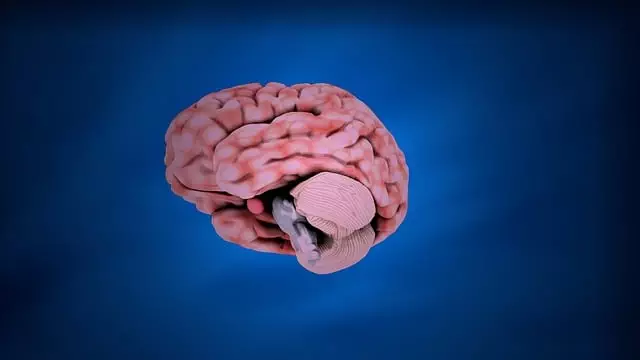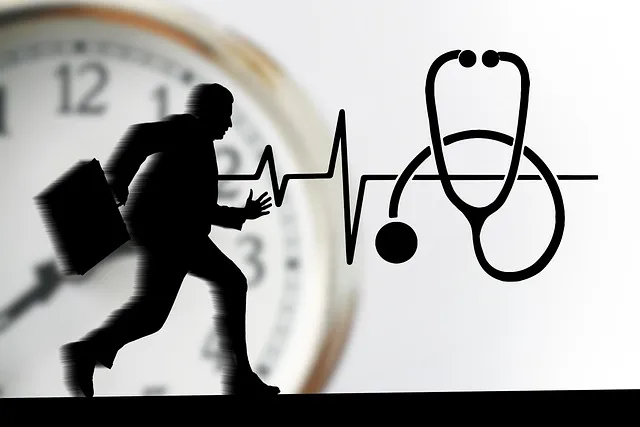Mental health professionals at Kaiser Permanente's Greenwood Village hotline face unique challenges like heavy caseloads and client trauma. They combat these risks through communication, emotional intelligence, and mindfulness, creating a healthier work environment and improving patient care. The hotline offers immediate access to expert guidance, promoting confidentiality and high-quality mental health care. By prioritizing risk management, continuous learning, and evidence-based practices, professionals at the Kaiser Permanente mental health number in Greenwood Village ensure client safety and adaptability, fostering a supportive culture that benefits both practitioners and patients.
Mental health professionals (MHPs) face unique risks in their daily practice. This article guides you through a comprehensive risk assessment framework, empowering MHPs to navigate challenges effectively. We explore key resources like the Kaiser Permanente Mental Health Number, offering valuable insights for hazard identification in clinical settings. Learn effective strategies for risk mitigation and continuous improvement, inspired by best practices in Greenwood Village and beyond.
- Understanding Mental Health Professional Risks: An Overview
- The Kaiser Permanente Mental Health Number: A Key Resource
- Identifying Potential Hazards in Clinical Settings
- Implementing Risk Mitigation Strategies for Safe Practice
- Continuous Evaluation and Improvement for Mental Health Professionals
Understanding Mental Health Professional Risks: An Overview

Mental health professionals, while dedicated to helping others, are not immune to various risks that can impact their well-being. Understanding and mitigating these risks is essential for maintaining a healthy work environment and ensuring optimal patient care. One key aspect to consider is the unique challenges faced by practitioners within organizations like Kaiser Permanente mental health number Greenwood Village. These include heavy caseloads, time pressures, and exposure to traumatic stories and experiences from clients.
Effective communication strategies, emotional intelligence, and mindfulness meditation have proven valuable tools in managing these risks. Communication strategies facilitate open dialogue with colleagues, patients, and supervisors, fostering a supportive network that recognizes and addresses professional challenges. Emotional intelligence equips mental health professionals with the ability to recognize and manage their own emotions, as well as understand and empathize with clients’ feelings, thereby enhancing therapeutic relationships. Mindfulness meditation encourages practitioners to cultivate present-moment awareness, reducing stress and improving resilience against work-related pressures.
The Kaiser Permanente Mental Health Number: A Key Resource

The Kaiser Permanente Mental Health Number serves as a valuable resource for professionals in Greenwood Village and beyond, offering a direct line to essential services. This dedicated hotline is designed to support individuals struggling with emotional well-being and mental health challenges, providing immediate access to expert guidance and care. By dialing this number, mental health practitioners can connect clients with the right resources, ensuring they receive the necessary support for their emotional regulation and self-esteem improvement.
With a focus on promoting effective techniques for emotional well-being, the hotline offers a confidential space for individuals to seek help without stigma. Whether it’s managing stress, anxiety, or other mental health concerns, professionals can guide clients towards appropriate services, fostering a holistic approach to mental wellness. This resource is a testament to the commitment to making high-quality mental health care accessible and convenient for those in need.
Identifying Potential Hazards in Clinical Settings

In clinical settings, mental health professionals are constantly navigating a complex web of potential hazards that can impact their well-being and that of their clients. One key area to focus on is identifying risks associated with patient interactions, which may include sensitive information sharing, intense emotional disclosures, or even physical safety concerns. For instance, the Kaiser Permanente mental health number in Greenwood Village, Colorado, emphasizes the importance of robust risk management planning. This involves assessing the potential for harm during therapy sessions, including the possibility of self-harm revelations or impulsive behaviors from patients.
Effective risk assessment requires a comprehensive look at the clinical environment, patient demographics, and the nature of mental health services provided. By implementing structured risk assessment tools, professionals can systematically identify and mitigate risks. Additionally, promoting mental wellness through journaling exercises and guidance, as well as developing coaching programs focused on risk management planning for mental health professionals, can create a supportive culture that enhances resilience and reduces potential hazards in these critical settings.
Implementing Risk Mitigation Strategies for Safe Practice

Mental health professionals are entrusted with the responsibility of safeguarding their clients’ well-being, making it imperative to implement robust risk mitigation strategies. At Kaiser Permanente mental health number Greenwood Village, for instance, we recognize that creating a safe and supportive environment involves more than just addressing symptoms; it entails fostering resilience and promoting positive thinking among individuals seeking help. By integrating evidence-based practices and incorporating techniques such as resilience building and confidence boosting, healthcare providers can significantly reduce potential risks and enhance overall patient outcomes.
These strategies not only strengthen the professional’s ability to manage challenging situations but also empower clients to navigate life’s uncertainties with greater poise. Through regular risk assessments and continuous training, mental health professionals can stay vigilant against emerging threats, adapt their practices accordingly, and ensure that every interaction fosters a sense of security and trust.
Continuous Evaluation and Improvement for Mental Health Professionals

Mental health professionals are never done learning. Continuous evaluation and improvement are essential components of their practice, reflecting the dynamic nature of both the field and human psychology. At Kaiser Permanente mental health facilities in Greenwood Village, for instance, professionals are encouraged to regularly assess their techniques, incorporating feedback from clients and peers. This process, often facilitated through regular workshops and peer supervision, allows for the identification of areas needing enhancement.
Self-esteem improvement, empathy building strategies, and emotional intelligence are key aspects that undergo ongoing refinement. By prioritizing these skills, mental health professionals can better serve their clients, fostering deeper connections and more effective interventions. This commitment to continuous learning not only benefits individuals within the organization but also ensures that patients receive the highest quality of care possible.
Mental health professionals, like those at Greenwood Village’s Kaiser Permanente facilities, face unique challenges that require proactive risk assessment. By understanding the hazards specific to their field, such as high-stress environments and sensitive patient information, practitioners can leverage resources like the Kaiser Permanente Mental Health Number for guidance. Implementing effective risk mitigation strategies not only ensures safer practice but also fosters continuous improvement. Regularly evaluating potential risks and adopting best practices are essential steps towards maintaining a resilient and healthy mental health workforce.






